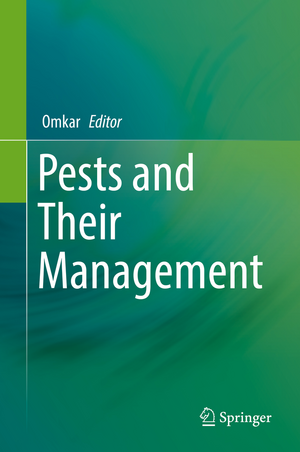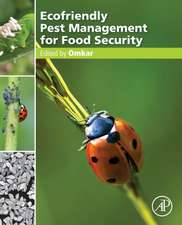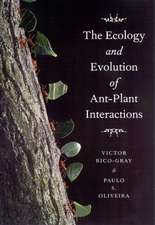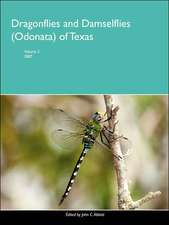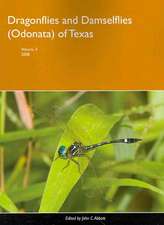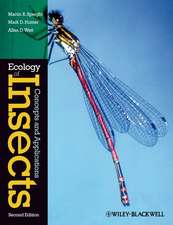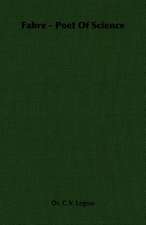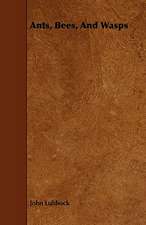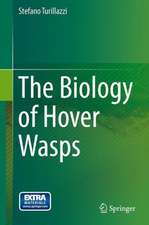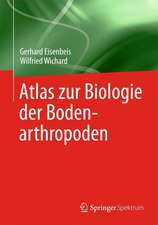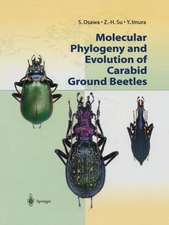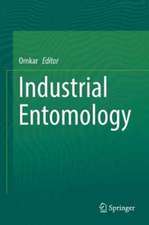Pests and Their Management
Editat de Omkaren Limba Engleză Hardback – 31 aug 2018
The 27 chapters in the book, are grouped into four sections primarily based on crop types, viz. pest of agricultural, horticultural and medicinal crops, and polyphagous pests, making the book easyto navigate. Each of the chapters is comprehensive and well illustrated and written by academicians who have dedicated their entire lives to the study of a particular crop-pest complex. The final chapter of this book provides an overview on the principles and processes of pest management.
| Toate formatele și edițiile | Preț | Express |
|---|---|---|
| Paperback (1) | 1684.89 lei 38-44 zile | |
| Springer Nature Singapore – 19 ian 2019 | 1684.89 lei 38-44 zile | |
| Hardback (1) | 1573.94 lei 38-44 zile | |
| Springer Nature Singapore – 31 aug 2018 | 1573.94 lei 38-44 zile |
Preț: 1573.94 lei
Preț vechi: 2070.98 lei
-24% Nou
Puncte Express: 2361
Preț estimativ în valută:
301.21€ • 327.07$ • 253.02£
301.21€ • 327.07$ • 253.02£
Carte tipărită la comandă
Livrare economică 18-24 aprilie
Preluare comenzi: 021 569.72.76
Specificații
ISBN-13: 9789811086861
ISBN-10: 9811086869
Pagini: 500
Ilustrații: XVI, 1078 p. 490 illus., 352 illus. in color.
Dimensiuni: 155 x 235 mm
Ediția:1st ed. 2018
Editura: Springer Nature Singapore
Colecția Springer
Locul publicării:Singapore, Singapore
ISBN-10: 9811086869
Pagini: 500
Ilustrații: XVI, 1078 p. 490 illus., 352 illus. in color.
Dimensiuni: 155 x 235 mm
Ediția:1st ed. 2018
Editura: Springer Nature Singapore
Colecția Springer
Locul publicării:Singapore, Singapore
Cuprins
Chapter 1. Pests and Their Management.- Part 1. Agricultural Crops.- Chapter 2. Pests of Rice.- Chapter 3. Pests of Maize.- Chapter 4. Pests of Wheat.- Chapter 5. Pests of Pulses. Chapter 6. Pests of Soybean.- Chapter 7. Pests of Vegetables.- Chapter 8. Management of Pests of Oil Seed Crops.- Chapter 9. Pests of Sugarcane.- Chapter 10. Pests of Stored Grains.- Chapter 11. Pests of Cotton.- Part 2. Horticultural Crops.- Chapter 12. Pests of Mango.- Chapter 13. Pests of Banana.- Chapter 14. Pests of Apple.- Chapter 15. Pests of Guava.- Chapter 16. Pests of Grape.- Chapter 17. Pests of Citrus.- Chapter 18. Pests of Jackfruit.- Part 3. Medicinal Crops.- Chapter 19. Pests of Walnut.- Chapter 20. Pests of Indian Tea Plantations.- Chapter 21. Pests of Seed Spices. Chapter 22. Pests of Medicinal and Aromatic Plants.- Part 4. Polyphagous Pests & Management Practices.- Chapter 23. Locusts.- Chapter 24. Aphids.- Chapter 25. Termites.- Chapter 26. Rodents.- Chapter 27. Insect Pest Management.
Notă biografică
Professor Omkar has been actively engaged for over three decades in teaching and for nearly four decades in research. He is currently working as professor and head at the Department of Zoology, University of Lucknow, Lucknow, India. He is a fellow of the National Academy of Sciences, India, and seven more professional bodies. He s a recipient of the Young Indian Zoologist of 20th Century Gold Medal by the Zoological Society of India (2000); P.- rof. T. N. Ananthakrishnan Foundation Award by the Prof. T. N. Ananthakrishnan Foundation, Chennai (2012); Rescholar Award of Excellence in Agricultural Entomology by the Association of Entomologists, Patiala (2014); and Prof. G. S. Shukla
Gold Medal by the Academy of Environmental Biology, India (2014). He has authored books including Concepts of Toxicology, Experimental Animal Physiology and Biochemistry, Kin Recognition and Oviposition Strategies in Aphidophagous Ladybirds-ansi-font-size:11.0pt;line-height:107%; font-family:"Calibri",sans. Professor Omkar has published about 150 research papers in international journals and 62 in Indian journals, 21 book chapters, and 14 popular science articles. Most of his research revolves around identifying and harnessing the potential of benefcial insects, in particular ladybird beetles, for which he is globally recognized. He has supervised 20 Ph. D. theses and completed about ten research projects funded by state and central government agencies. He is a member of the editorial board of the International Journal ;Calibri",sans-serif">of Tropical Insect Science, and chief editor of the Journal of Applied Bioscience besides being president of the International Society of Applied Biology. He works as a referee for about 40 international and 20 Indian journals of repute in addition to working as a subject expert in grant applications for the Swiss National Science Foundation, Switzerland, and a few central and state government funding agencies He is the recipient ofprestigious travel awards from the Indian National Science Academy, through which he has traveled, collaborated, and worked with global experts on ladybird biology at the University of East Anglia, UK, and the University of South Bohemia and Czech Academy of Sciences, Czech Republic.
Gold Medal by the Academy of Environmental Biology, India (2014). He has authored books including Concepts of Toxicology, Experimental Animal Physiology and Biochemistry, Kin Recognition and Oviposition Strategies in Aphidophagous Ladybirds-ansi-font-size:11.0pt;line-height:107%; font-family:"Calibri",sans. Professor Omkar has published about 150 research papers in international journals and 62 in Indian journals, 21 book chapters, and 14 popular science articles. Most of his research revolves around identifying and harnessing the potential of benefcial insects, in particular ladybird beetles, for which he is globally recognized. He has supervised 20 Ph. D. theses and completed about ten research projects funded by state and central government agencies. He is a member of the editorial board of the International Journal ;Calibri",sans-serif">of Tropical Insect Science, and chief editor of the Journal of Applied Bioscience besides being president of the International Society of Applied Biology. He works as a referee for about 40 international and 20 Indian journals of repute in addition to working as a subject expert in grant applications for the Swiss National Science Foundation, Switzerland, and a few central and state government funding agencies He is the recipient ofprestigious travel awards from the Indian National Science Academy, through which he has traveled, collaborated, and worked with global experts on ladybird biology at the University of East Anglia, UK, and the University of South Bohemia and Czech Academy of Sciences, Czech Republic.
Textul de pe ultima copertă
This book comprehensively compiles information on some of the major pests that afflict agricultural, horticultural and medicinal crops in particular as well as many polyphagous pests. Not only does this book deal with the pests of common globally produced crops it also addresses those of rarely dealt with crops such as seed spices, medicinal and aromatic plants. While the perspective of insect pests is largely Indian and South East Asian in context, the book does deal with globally problematic pests, particularly polyphagous ones. Not only will the readers be acquainted with the pests, their damaging potential and their life cycle but also with the latest methods of managements including ecofriendly measures being employed to keep pest populations at manageable levels.
The 27 chapters in the book, are grouped into four sections primarily based on crop types, viz. pest of agricultural, horticultural and medicinal crops, and polyphagous pests, making the book easy to navigate. Each of the chapters is comprehensive and well illustrated and written by academicians who have dedicated their entire lives to the study of a particular crop-pest complex. The final chapter of this book provides an overview on the principles and processes of pest management.
The 27 chapters in the book, are grouped into four sections primarily based on crop types, viz. pest of agricultural, horticultural and medicinal crops, and polyphagous pests, making the book easy to navigate. Each of the chapters is comprehensive and well illustrated and written by academicians who have dedicated their entire lives to the study of a particular crop-pest complex. The final chapter of this book provides an overview on the principles and processes of pest management.
Caracteristici
Presents comprehensive information collated by senior specialists Covers wide aspects of industrial and agricultural entomology Contains authentic, authoritative and updated information on the topics
